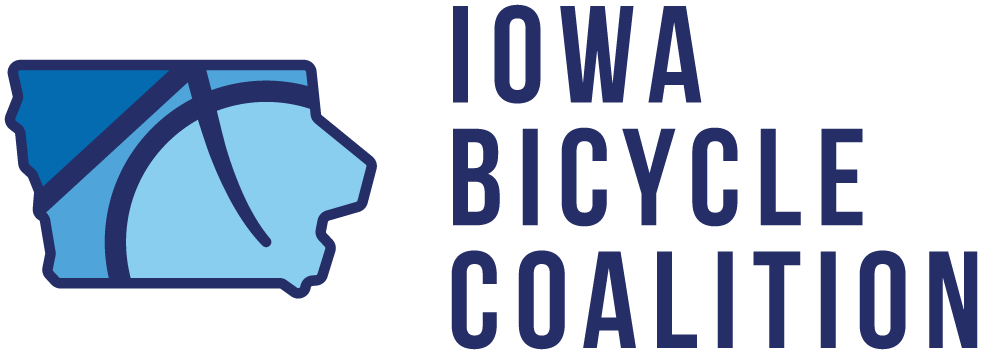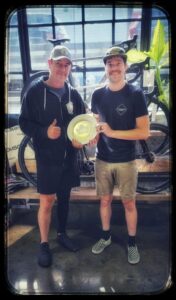To Des Moines resident and cyclist Todd Robertson, the benefits of cycling extend beyond getting exercise, spending time outside, and connecting with a community of like minded people. As a 7-time blood clot survivor, Todd credits cycling for saving his life. Now, Todd is a patient advocate with the Nation Blood Clot Alliance and promotes blood clot awareness and prevention. He hopes to motivate other blood clot patients to take up cycling.
“The health benefits of cycling mean more to me than just finishing a ride. Not finishing a race, not breaking a PR. My experience with blood clots happened to tie in well to the 100 mile mountain bike event (Sycamore 100) back in September.
But the ride was not only for my personal health, but for the thousands of patients I manage in support groups. To give them light at the end of a dark tunnel. To show that a blood clot survivor can do anything and how cycling is what keeps the blood flow strong while increasing lung strength after a damaging pulmonary embolism.
That said, with all the good comes a lot of caution since many of us clotters are on blood thinners which increases the risk for bleeding (internal). To not clot further, I have to be on an injection daily. I had to give myself this injection the night of my ride, 80 miles into the 100. I had to be careful on the technical part of the “Top Shelf” trail. Still, I finished the event in 12 hours, with a chronic blood clot from thigh to ankle. This was all approved by my vascular specialist who said that “cycling is the best thing for you right now”. When I asked for approval to do the Sycamore 100, his response was “good luck and have fun”.
Many patients use cycling as a “healing tool”, both physically and mentally. When it comes to good blood flow and circulation stimulation, cycling is the way to go and it’s an excellent way to keep the blood moving so you can avoid blood clots.
After all, 274 Amercians die every day on average, sudden death from blood clots. Right now, only 6 percent of Americans know what a blood clot is, so it is critical that more Americans become aware of their risks and take steps to prevent and treat blood clots, which can be life-threatening. Do yourself and your family a favor and know your family history, know the risk factors and know the symptoms.”
Todd runs a support group for the National Blood Clot Alliance – Team Stop the Clot. You can check out the support group here.
Todd also works for the Iowa DNR as a canoe, kayak and SUP instructor.
The Iowa Bicycle Coalition is conducting a study on the Economic and Health Impacts of Cycling and Trails. You can learn more about the study here.



